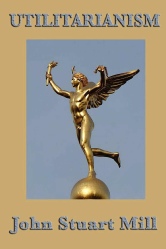



 NEXT
NEXT
 BACK
BACK
 Forum
Forum


Philosophical musings on Quanta & Qualia; Materialism & Spiritualism; Science & Religion; Pragmatism & Idealism, etc.




Moral rules
versus
Moral Character
Post 53. October 10, 2018
Moral Philosophies
Utilitarianism versus Realism
Most people seem to assume that God should have created a more perfect world where “the survival and flourishing of sentient beings “ was the basic principle of natural laws. But, it's obvious to realistic observers that the natural system is neutral, and homo sapiens are not given preferential treatment among all beings. So, pragmatic humans have taken it upon them-
Some of those culture creators seem to assume, confidently and optimistically, that Mother Nature owes us a clear path to Life, Liberty, and the Pursuit of Happiness. But, in practice, we have had to hack-
In his original article*, Shermer expressed his belief that Natural Rights are inherent in the system that produced homo sapiens. But, in his response, Pigliucci counters that the notion of “rights” is a human cultural construct, without any instances in nature, apart from the “right” of might. In natural evolution, only the strong survive, except in cases where intellectual fitness offsets physical weakness. Massimo says that “I don't think there is any defensible notion of natural rights . . . that is not hopelessly entangled with what I think are antiquated or indefensible notions of Platonism, teleology, or theology”. He goes on to assert that “natural rights refers to something that is mind-
I happen to agree that non-
Post 53 continued . . . click Next
* Reference Articles :
Science & Moral Values :
This post was inspired by a dialogue between Michael Shermer, Massimo Pigliucci, and Kevin McCaffree in
SKEPTIC Magazine.
https://michaelshermer.com/2018/04/moral-
NOTES :
Virtue vs Rule Morality : “today philosophers distinguish between act utilitarianism, “where we must evaluate the morality of each act, a la Bentham,” and rule utilitarianism, “where we conform to rules that have shown overall to bring about the greatest amount of good, a la Mill.”
Utilitarianism principle : greatest good for greatest number. One interpretation is that it's permissible to sacrifice the few to benefit the many.
Utilitarianism : the ends justify the means
Deontology : the end is justified by following the rules
Qualitarian Morality :
The Utilitarian calculus and the Categorical analysis tend to polarize complex issues. Such simple Either/Or logic can clarify muddy morality, but it ignores the overlapping middle zone of Both/And. That’s where Bayesian inference applies.
1. Human Flourishing :
Shermer : “ . . . the survival and flourishing of sentient beings is my moral starting point, and it is grounded in principles that are them-
2. Inference :
Categorical : the process of deriving the strict logical consequences of assumed premises. True or False.
Bayesian : the process of arriving at some conclusion that, though it is not logically derivable from the assumed premises, possesses some degree of probability relative to the premises.
3. Memetic :
Memetics is the study of information and culture based on an analogy with Darwinian evolution. Proponents describe memetics as an approach to evolutionary models of cultural information transfer.
4. Might vs Right :
Shermer prefers the more pragmatic Natural Rights theory of morality, which is interpreted to mean that human individuals are born with the most important moral distinction : self-
5. Moral Grounds :
The Ten Commandments were based on Bronze Age magical science, but modern moralities should be grounded in Information Age mundane science as far as possible. Unfortunately, there are still gaps in our understanding of human nature.
